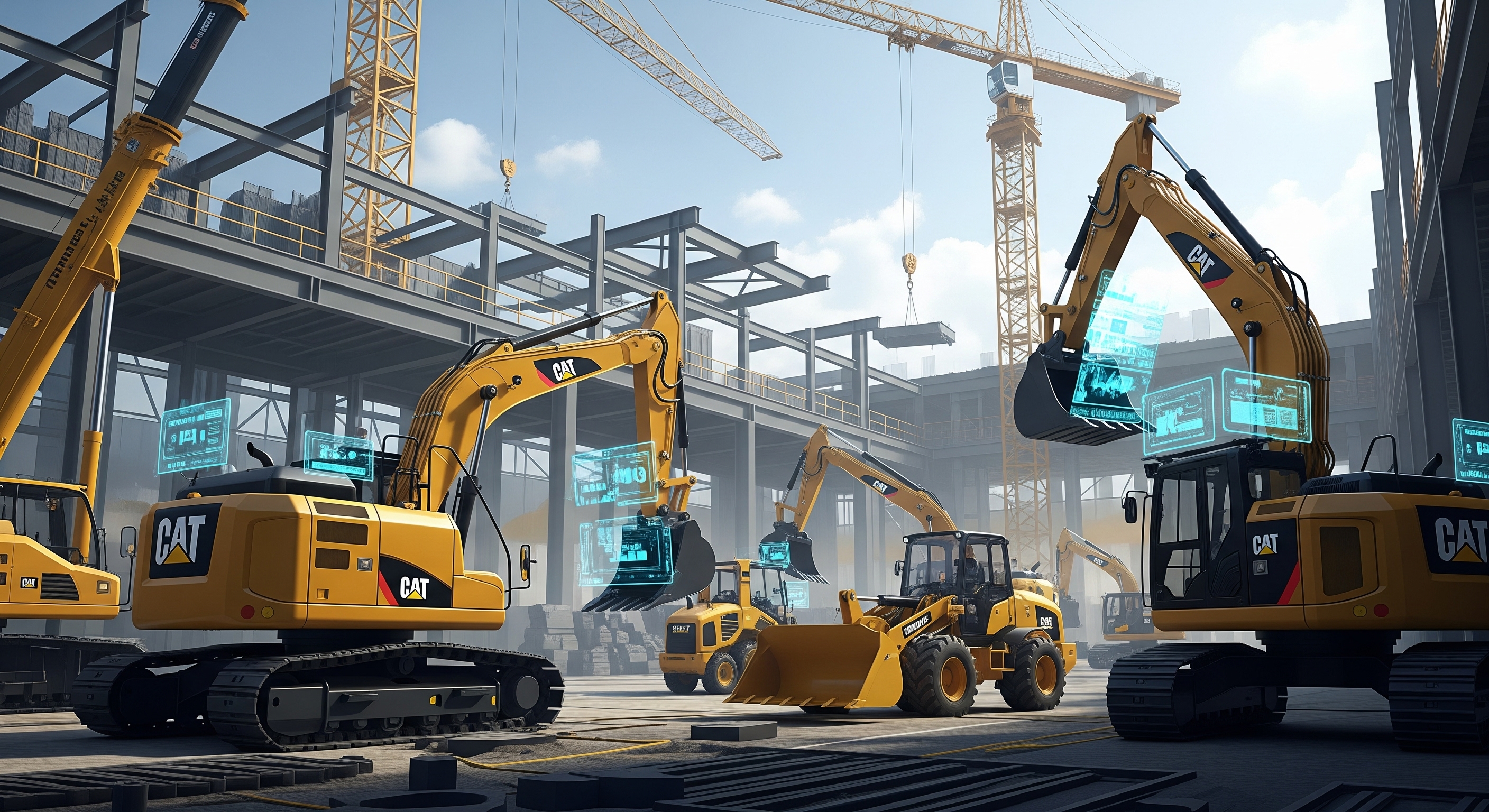The Future of Construction: Innovative Technologies Reshaping the Industry
Discover how innovative technologies are transforming the construction industry in this insightful article from Barloworld Equipment. Learn about the latest advancements and trends that increase efficiency, productivity, and sustainability in construction.
Embracing innovation is crucial for boosting productivity, improving on-site safety, and reducing the total cost of machine ownership. Professionals who don't adopt these new technologies risk getting left behind.
The evolving industry landscape: Shifting expectations
Traditional methods are becoming outdated as technology reshapes industry expectations. This evolution brings with it certain concerns and misunderstandings, the primary two being that:
- Technology is financially out of reach for many, and that
- It will ultimately render human workers redundant.
The reality is that technology has the potential to significantly enhance human capabilities.
Historically, the introduction of any new technological advancement is often met with resistance, even in well-established industries like construction. The transition from traditional practices to technology-driven productivity can be challenging. As James Ramabu, a Deployment and Productivity Solutions specialist at Barloworld Equipment, points out, "A crucial aspect is upskilling the workforce to operate effectively in a technology-driven environment, rather than relying solely on traditional methods. Proactive change management is essential to address ethical and societal considerations surrounding technology's role and to alleviate public anxieties regarding its impact on traditional employment roles."
B.Beyond operational improvements, technology is also bolstering health and safety protocols. Governments and regulatory bodies are increasingly implementing and enforcing stricter regulations to tackle the unique safety challenges present on construction sites. These regulations prioritise thorough risk assessment and proactive hazard identification, alongside the implementation of robust safety measures. For instance, technology is being employed for real-time monitoring and site reporting, enabling swift responses to emergencies and potential hazards.
Key trends shaping the future of construction
- Digital transformation in construction
The integration of sophisticated technologies such as Building Information Modelling (BIM) and the Internet of Things (IoT) is revolutionising legacy processes, fundamentally changing how projects are planned, executed, and managed.
BIM is a 3D model-based tool utilised throughout the lifecycle of construction projects, from initial feasibility studies to the eventual decommissioning of equipment. Machines operating in remote locations can now be connected via the IoT, allowing for vital data transmission of their activities and performance.
Utilising condition monitoring suites, operation overlords can track, view, and monitor their machinery conveniently from their pc, mobile devices, from anywhere. This significantly improves project management capabilities and eliminates the need to collate data from disjointed sources.
Another area of emerging innovation is machine guidance. This technology allows tasks that previously required a surveyor to now be carried out autonomously, freeing up time and resources for more focus on strategic work.
- Advanced Equipment and Automation
The use of advanced equipment and automation is also on the rise, including Augmented Reality (AR), Virtual Reality (VR), and drones or Unmanned Aerial Vehicles (UAVs).
When paired with Artificial Intelligence (AI), AR technology is already being used to deliver remote learning opportunities, allowing operators to control machinery from thousands of kilometres away. At Barloworld Equipment, we're leveraging this very technology to provide comprehensive operator training for our customers.
- Sustainable equipment and machinery
New electric and battery-powered machines are being introduced to lower emissions. "We're witnessing an energy transition towards diverse energy sources, primarily through the electrification of machinery," explains Ramabu. For machines still relying on fossil fuels, the focus is on achieving better fuel efficiency to minimise pollution.
Sustainability extends beyond environmental concerns and encompasses the financial viability of businesses. Equipment manufacturers are prioritising the development of sustainable and efficient machinery, including features like low-emission driving and improved fuel efficiency.
- Equipment management services: Maximising efficiency
Equipment Management Services (EMS) are crucial for a successful construction project. This involves the complete oversight and optimisation of equipment throughout its entire operational life.
These services help professionals make informed decisions when selecting the right equipment. As Mpho Komako, Senior Innovation and Insights Manager from Barloworld Equipment, explains, "It's essential to understand that more isn't always better, and less isn't always worse. The key is securing the right quantity of the right resources." This ensures optimal resource allocation, minimises costs, and boosts overall project efficiency.
EMS technology also includes tracking capabilities, which are particularly useful for projects spread over large footprints and those in high-crime zones where theft is a risk.
Implementing EMS technology can lead to significant time and cost savings, says Komako. “Using condition monitoring services has proven to be effective in preserving equipment and delivering substantial cost savings for our customers. We conduct a detailed analysis of critical components, allowing for timely intervention before a catastrophic failure can occur.”
Shaping the Future of Construction
Collectively, these trends are shaping the future of construction, with technology, sustainability, and comprehensive equipment management leading the way.
Technology enhances efficiency, making construction work more cost-effective. Educating more people on the benefits of technology in the construction sector will only encourage greater adoption of these emerging tools and practices.
To find out how you can improve your operations today
 Articulated trucks
Articulated trucks
-1.webp) Dozers
Dozers
-1-1.png) Backhoe Loaders
Backhoe Loaders
 Hydraulic Mining Shovels
Hydraulic Mining Shovels
 ELECTRIC POWER
ELECTRIC POWER
 MARINE POWER
MARINE POWER
 INDUSTRIAL
INDUSTRIAL
 OIL AND GAS
OIL AND GAS
.png) RENTALS
RENTALS






.png?width=352&height=352&name=Web%201148x417_2%20(2).png)



%20Image%20January%2022%2c%202026%20-%204_13PM%20V1%20(1).jpeg?width=352&height=352&name=The%20Mining%20Powerhouse%20(SEM%20Wheel%20Loader)%20Image%20January%2022%2c%202026%20-%204_13PM%20V1%20(1).jpeg)



